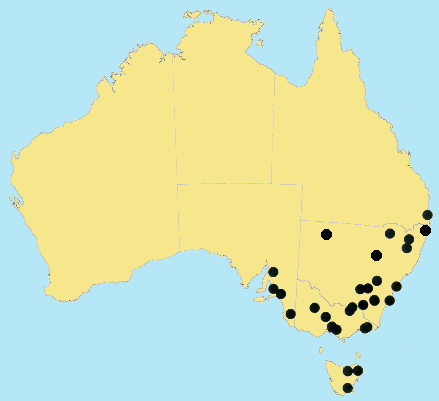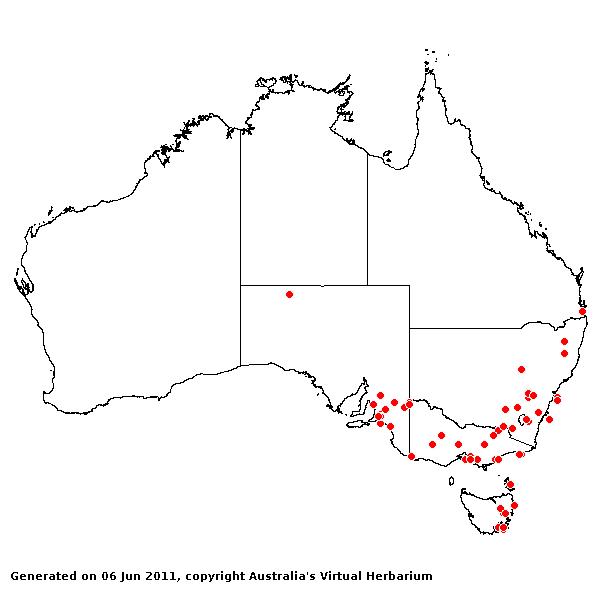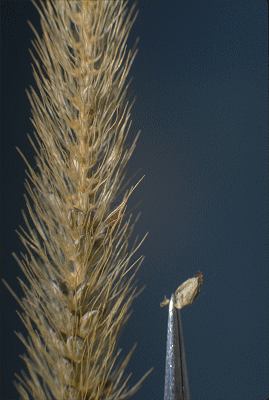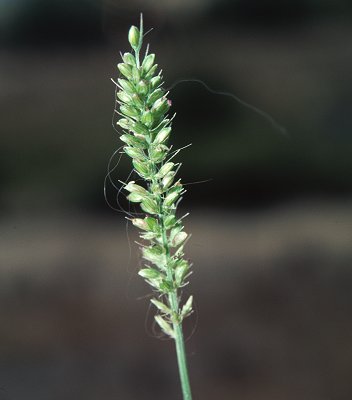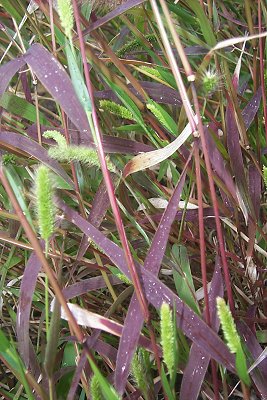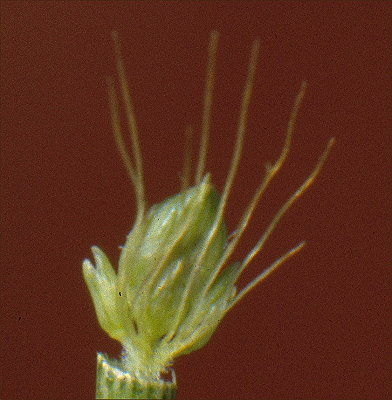Setaria viridis* (L.) Beauv. Ess.
Agrost. 51, 178 (1812).
Classification. (GPWG 2001) : Subfamily
Panicoideae. Paniceae.
Basionym and/or
Replacement Name: Panicum viride
L., Syst. Nat. (ed. 10) 2: 870 (1759).
Type of Basionym or
Protologue Information: LT: Europe
(LINN-80.12). LT cited by Sherif & Siddiqui, Fl. Libya 145: 296
(1885).
Key references
(books and floras): [1952] C.A.Gardner, Flora of Western Australia 1
Gramineae (267), [1981] M.Lazarides in J.Jessop (ed)., Flora of
Central Australia (481), [2002] D.Sharp & B.K.Simon, AusGrass,
Grasses of Australia, [2006] J.Jessop, G.R.M.Dashorst, F.M.James, Grasses
of South Australia (485), [2008] S.W.L.Jacobs, R.D.B.Walley &
D.J.B.Wheeler, Grasses of New South Wales (371).
Illustrations:
[2006] J.Jessop, G.R.M.Dashorst, F.M.James, Grasses of South Australia (485, Fig. 420), [2008] S.W.L.Jacobs,
R.D.B.Whalley & D.J.B.Wheeler, Grasses of New South Wales, 4th edn
(370).
Habit. Annual.
Rhizomes absent. Culms erect or geniculately ascending or decumbent, 80–230 cm
tall, 3–5 -noded. Mid-culm nodes glabrous. Ligule a fringe of hairs.
Leaf-blades flat, 3–30 cm long, 2–10 mm wide. Leaf-blade surface scaberulous or
scabrous, glabrous.
Inflorescence.
Inflorescence solid, a panicle. Panicle linear, 1–10 cm long, 0.4–1 cm wide.
Spikelets.
Spikelets pedicelled, 2–6 in the cluster. Involucre composed of bristles, free
throughout. Fertile spikelets 2-flowered, the lower floret barren (rarely
male), the upper fertile, comprising 1 basal sterile florets, comprising 1
fertile floret(s), without rachilla extension, elliptic, dorsally compressed,
2–3 mm long.
Glumes. Glumes
dissimilar, thinner than fertile lemma. Lower glume oblate, membranous, without
keels, 1–3 -nerved. Upper glume elliptic, 1.9–2.2 mm long, membranous, without
keels, 5 -nerved. Florets. Basal sterile florets 1, barren, with palea
or without significant palea. Lemma of lower sterile floret 100 % of length of
spikelet, membranous, 5–7 -nerved.
Fertile lemma 1.9–3 mm
long, without keel. Lemma apex muticous. Anthers 3.
Continental
Distribution: Europe, Africa, Temperate Asia, Tropical Asia, Australasia,
North America, and South America.
Australian
Distribution: South Australia, Queensland, New South Wales,
Victoria, Tasmania.
South
Australia: North-western, Northern Lofty, Murray, Southern Lofty, South-eastern. Queensland:
Moreton. New South Wales: North Coast,
Northern Tablelands, Central Tablelands, Southern Tablelands, Central-Western
Slopes, North Far Western Plains. Victoria:
East Gippsland, Gippsland Plain, Midlands,
Volcanic Plain, Wimmera. Tasmania: Midlands, East Coast.
Notes.
Introduced; flowers Dec.
